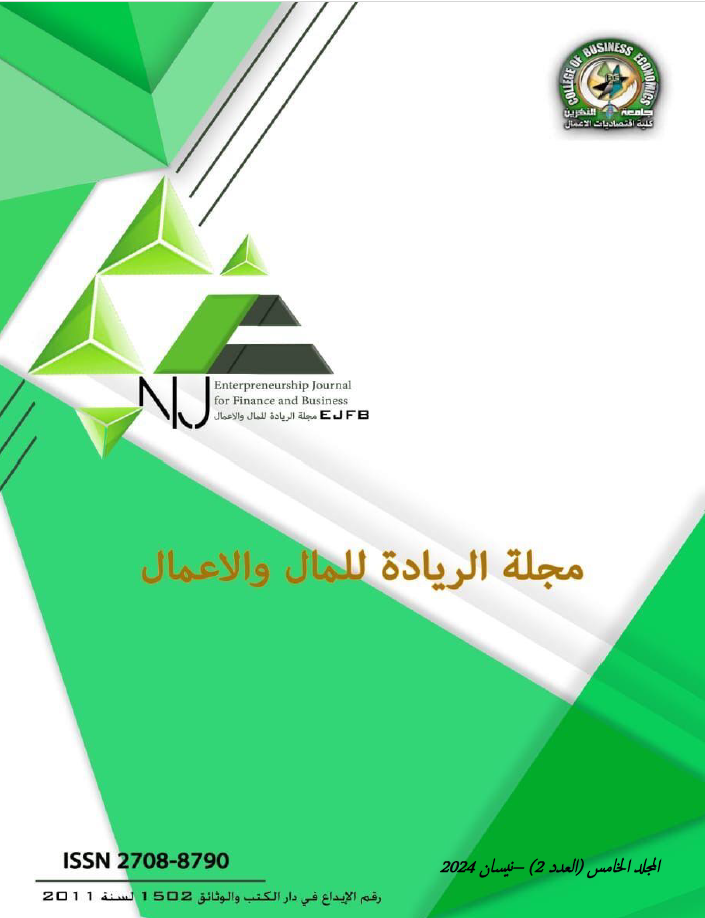تحليل تأثير بعض العوامل ذات الصلة بتطور المصارف العراقية وابتكار خدمات إلكترونية جديدة
DOI:
https://doi.org/10.56967/ejfb2024414Keywords:
electronic banking services, Iraqi banks, technological determinantsAbstract
It is not superfluous to claim that Iraqi banks are not technologically advanced. The aim of this research is to identify the factors that affect the adoption of electronic banking services in the Iraqi banking industry. The researchers focused on discussing and examining three main factors: the technological factor, the systems factor (legal and economic), and the environment factor (internal and external). The researchers used the descriptive approach in presenting and discussing the theoretical framework of the research and previous studies. Then they used the analytical statistical approach in examining the influencing factors. The questionnaire method was used to collect primary data from the research sample, which represented 16 Iraqi banks. 101 questionnaires suitable for analysis were obtained. Compiling the answers and analysing them statistically. The results of the study indicated that the main obstacles facing the Iraqi banking industry in adopting electronic banking services are: security risks, lack of trust, lack of a legal and regulatory framework, lack of information and communications technology infrastructure, and lack of competition between local and foreign banks. The researchers proposed a series of measures that the banking industry and government could take to address the various challenges identified. These measures include: creating a clear set of legal frameworks on the use of technology in the banking industry, supporting the banking industry by investing in ICT infrastructure, and banks should focus on competing in technological innovation rather than the traditional rules of retail banking competition.
Downloads
Downloads
Published
How to Cite
Issue
Section
License
Copyright (c) 2024 نغم نعمة، عصام الحسيني

This work is licensed under a Creative Commons Attribution 4.0 International License.
This is an Open Access article distributed under the terms of the creative commons attribution (CC BY) 4.0 international license which permits unrestricted use, distribution, and reproduction in any medium or format, and to alter, transform, or build upon the material, including for commercial use, providing the original author is credited.






